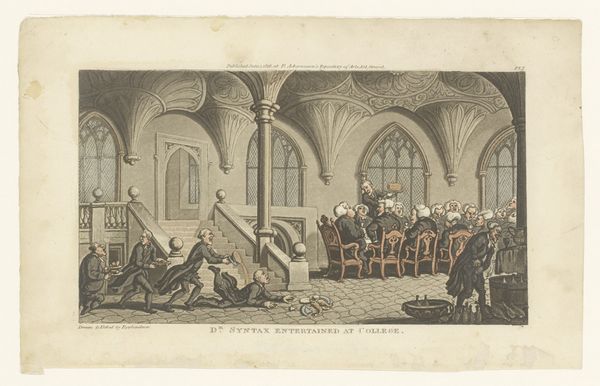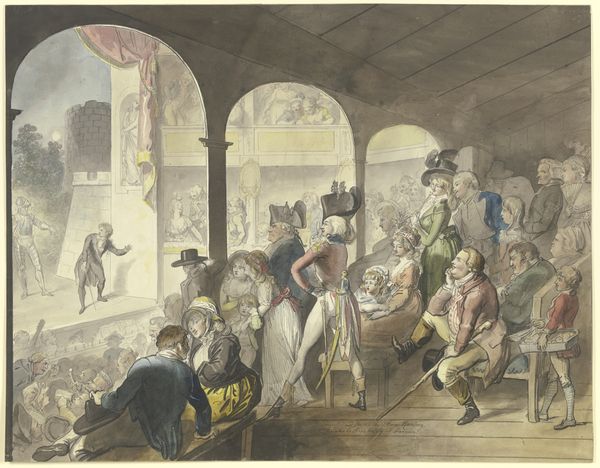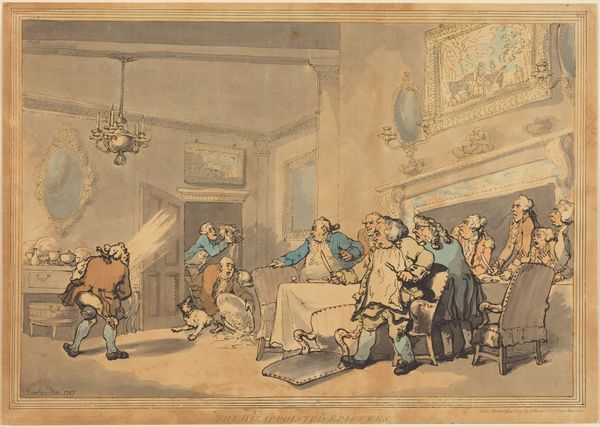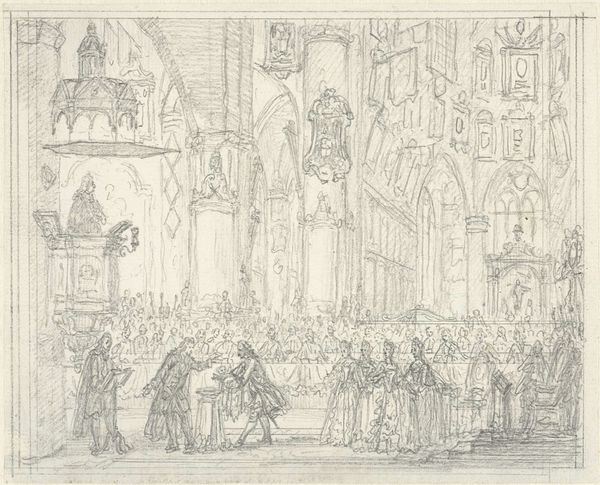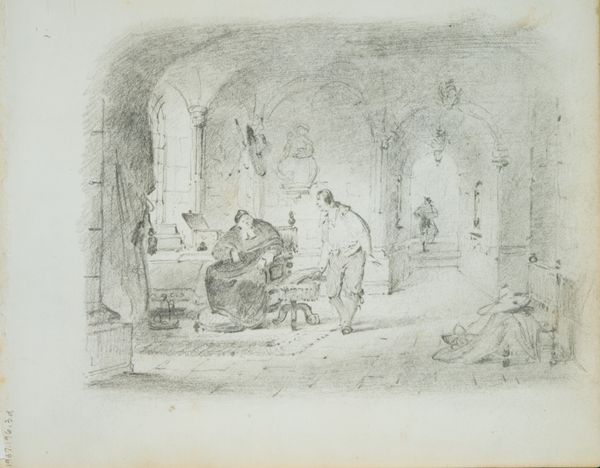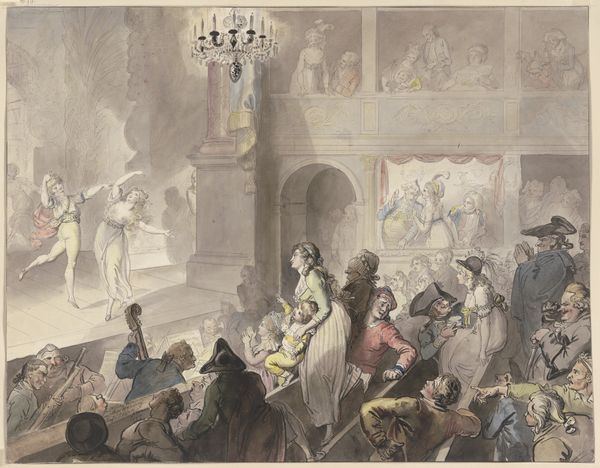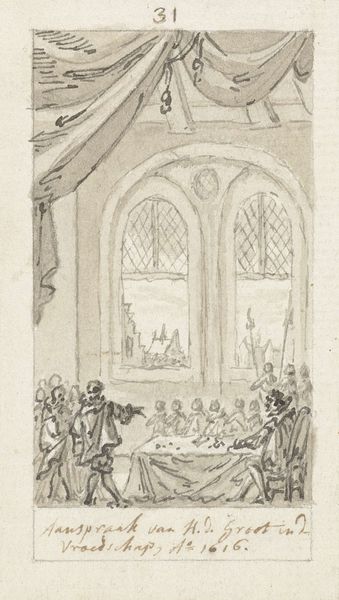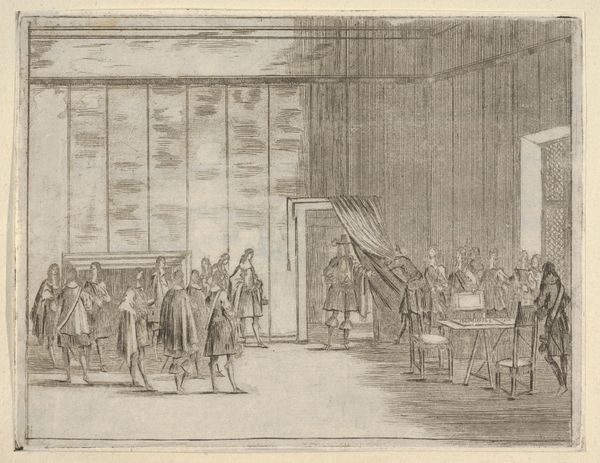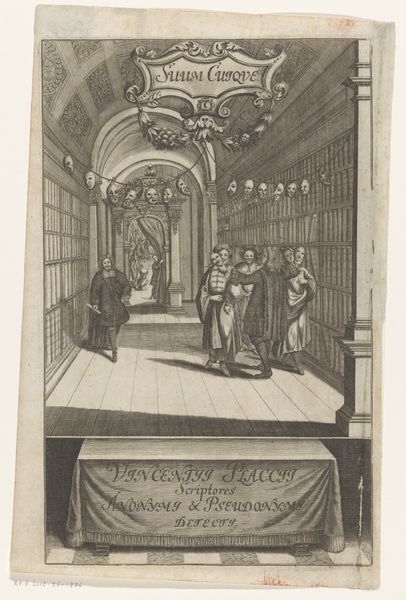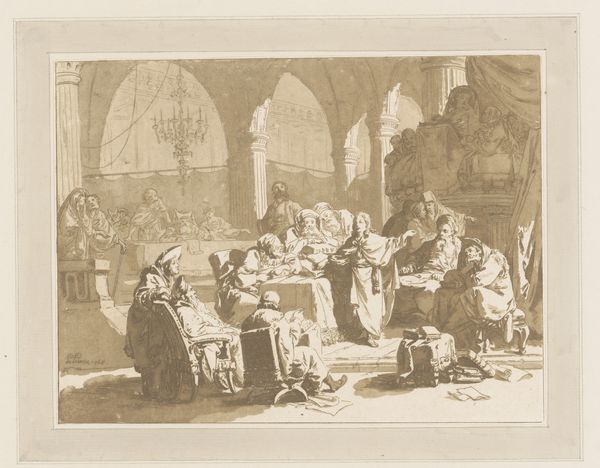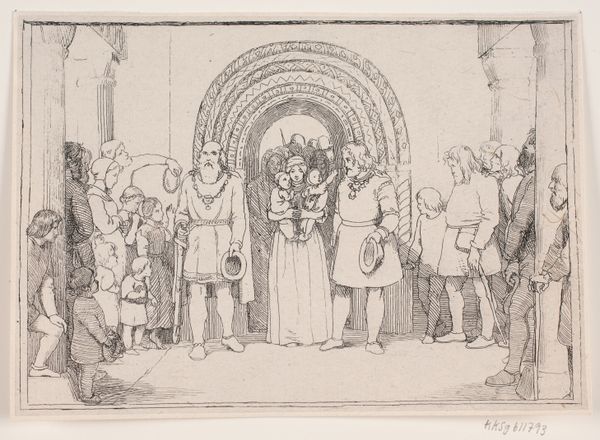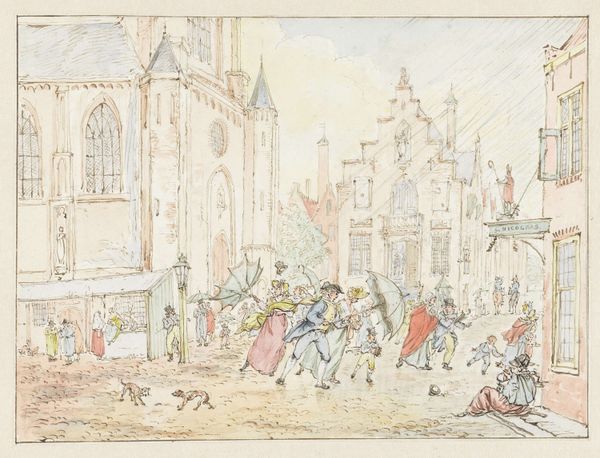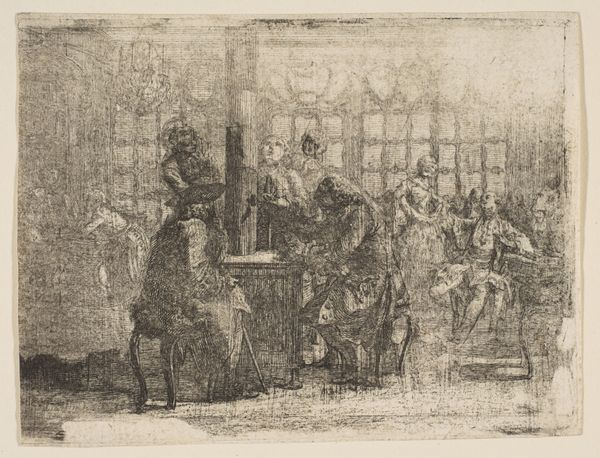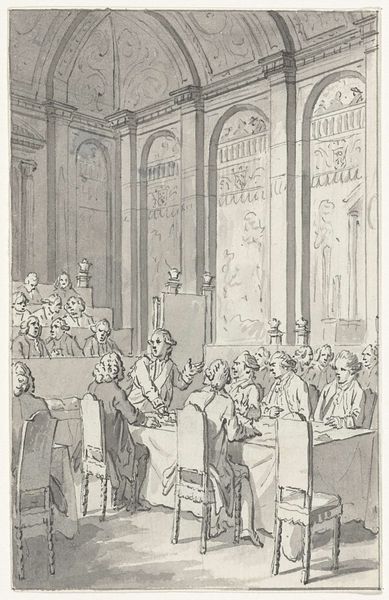
drawing, print, paper, watercolor, ink
#
drawing
# print
#
caricature
#
paper
#
watercolor
#
ink
#
romanticism
#
watercolour illustration
#
genre-painting
Dimensions: 65 × 106 mm
Copyright: Public Domain
Curator: What an effervescent scene. We're looking at "Study for Dr. Syntax Entertained at College," a watercolor and ink drawing by Thomas Rowlandson, dating back to approximately 1828. It's currently housed at The Art Institute of Chicago. Editor: My immediate impression is of a slightly chaotic but overall amusing scene, filled with linear precision despite the slapstick humor. The palette, subdued as it is, seems crucial to establishing a satirical, rather lighthearted mood. Curator: Absolutely. Consider the interplay between the ink's linearity and the watercolor washes—Rowlandson masterfully uses line to define form and imbue the figures with his signature exaggerated expressiveness, bordering on caricature. The spatial rendering relies heavily on implied perspective. Editor: Precisely. And it’s not just the high-society characters Rowlandson is scrutinizing; it's the labor intrinsically woven into this scene of academic frivolity. Observe how the waiters maneuver through this high-status dining room with such agility that verges on dangerous, possibly revealing class anxieties concerning status and mobility. The fallen figure emphasizes precarious conditions behind social display. Curator: I agree entirely. Note how Rowlandson uses color sparsely and strategically to draw the eye and subtly underscore certain compositional relationships, especially by playing up the gesticulations and grimaces that punctuate the dining table gathering like semiotic codes. He’s pointing to deeper social scripts, one’s embodied position of advantage or precariousness relative to the other’s, with the fallen servant visually mirroring society’s pitfalls. Editor: Furthermore, it's interesting to see what specific vessels these social relations are made visible. This image makes one conscious of consumption habits through various dishes, wine glasses, and barrel that symbolize not only overindulgence, but also serve as commentary of status within class distinctions. Curator: An insightful remark. In conclusion, Rowlandson’s artwork, though seemingly simple, cleverly exploits compositional arrangements and subtly heightened expression to unveil hidden narratives regarding status and performativity. Editor: Rowlandson encourages us to see beyond this comedic surface, urging us to be more conscious about consumption culture reflected here through means of artistic production from early 19th century Britain.
Comments
No comments
Be the first to comment and join the conversation on the ultimate creative platform.
